0
Report
Community:
Apr 10, 2024
In this new report, The Children’s Equity Project and the Equity Research Action Coalition review the impacts of several social policies across health, education, housing, and income/wealth- on Black children and families.
This report advances the Black Child National Agenda, developed in 2021 by the Equity Research Action Coalition and other partners, by examining major policies and programs in the United States that impact the lives of Black children and families. It is critical to identify policies that can protect Black children and families from harm and trauma; promote their health, wealth, and access to educational excellence; and preserve their cultural heritage, language institutions, and healthy racial identity.
Authored by: Catherine, E., Alexander, B., Iruka, I.U., Meek, S., & Edwards, M.C. (April, 2024). Review of Policy Effects on Black Families and Children: Advancing the Black Child National Agenda. Equity Research Action Coalition at UNC Frank Porter Graham Child Devel
Topics: Advocacy, Child welfare, Early childhood, Racial inequalities
 Shared by Molli Caite Hughes
Shared by Molli Caite Hughes
Molli Caite Hughes posted a
on Apr 10, 2024
Catherine, E., Alexander, B., Iruka, I.U., Meek, S., & Edwards, M.C. (April, 2024). Review of Policy Effects on Black Families and Children: Advancing the Black Child National Agenda. Equity Research Action Coalition at UNC Frank Porter Graham Child Devel
In this new report, The Children’s Equity Project and the Equity Research Action Coalition review the impacts of several social policies across health, education, housing, and income/wealth- on Black children and families.
This report advances the Black Child National Agenda, developed in 2021 by
0
Report
Community:
Dec 6, 2023
Developed by listening to our community, the Alliance has compiled seven hallmarks that make up a person-first health system.
Authored by: allhealthpolicy.org
Topics: Advocacy, Community development, Health, Healthy homes, Medicaid / Medicare
 Shared by Molli Caite Hughes
Shared by Molli Caite Hughes
Molli Caite Hughes posted a
on Dec 6, 2023
Developed by listening to our community, the Alliance has compiled seven hallmarks that make up a person-first health system.
0
Report
Community:
Nov 14, 2023
As the frequency and severity of weather and climate hazards rises, fully understanding and planning for their potential impact on affordable housing is critical.
This report examines the risks that natural hazards pose to federally assisted housing and its residents using Federal Emergency Management Agency's National Risk Index (NRI).
Authored by: A joint report by The Public and Affordable Housing Research Corporation & The National Low Income Housing Coalition
Topics: Environmental Resiliency/Climate Change, Housing
 Shared by Molli Caite Hughes
Shared by Molli Caite Hughes
Molli Caite Hughes posted a
on Nov 14, 2023
A joint report by The Public and Affordable Housing Research Corporation & The National Low Income Housing Coalition
As the frequency and severity of weather and climate hazards rises, fully understanding and planning for their potential impact on affordable housing is critical.
This report examines the risks that natural hazards pose to federally assisted housing and its residents using Federal Emergency Managem
0
Policy Brief
Community:
Mar 1, 2023
Social service programs are often looking for ways to assess and improve program design and implementation, and are increasingly using rapid learning methods to do so. In rapid learning cycles, programs try a new approach, see how well it works, make modifications to strengthen it, and then try it again. This brief illustrates how 10 fatherhood programs used learning cycles to evaluate one of three promising approaches to engaging men in their services, and the ways they used data in the learning cycle process to make decisions about the design and implementation of the approaches. Even outside of the learning cycle framework, programs may benefit from using data and the observations and reflections of participants and staff members to guide the implementation of program elements, as is illustrated in this piece.
Authored by: Keri West, Diego Quezada, Jonny Poilpré, and Rebecca Behrmann for Manpower Demonstration Research Corporation
Topics: Family engagement, Healthy homes, Research
 Shared by Sandra Ware
Shared by Sandra Ware
Sandra Ware posted a
on Jun 8, 2023
Keri West, Diego Quezada, Jonny Poilpré, and Rebecca Behrmann for Manpower Demonstration Research Corporation
Social service programs are often looking for ways to assess and improve program design and implementation, and are increasingly using rapid learning methods to do so.
0
Policy Brief
Community:
Mar 1, 2023
This document summarizes what was learned in SIRF (Strengthening the Implementation of Responsible Fatherhood Programs), which engaged 10 programs in using learning cycles—repeated periods of implementing ideas and reflecting on the results—to build evidence on practices to improve the enrollment, engagement, and retention of fathers in fatherhood programs.
Authored by: Charles Michalopoulos and Rebecca Behrmann for Strengthening the Implementation of Responsible Fatherhood Programs
Topics: Family engagement, Research
 Shared by Sandra Ware
Shared by Sandra Ware
Sandra Ware posted a
on Jun 8, 2023
Charles Michalopoulos and Rebecca Behrmann for Strengthening the Implementation of Responsible Fatherhood Programs
This document summarizes what was learned in SIRF (Strengthening the Implementation of Responsible Fatherhood Programs), which engaged 10 programs in using learning cycles—repeated periods of implementing ideas and reflecting on the results—to build evidence on practices to improve the enrollment, e
0
Policy Brief
Community:
Mar 1, 2023
Unfortunately, there are more youth experiencing homelessness than there are resources available. Up to 40% of youth experiencing homelessness identify as lesbian, gay, bisexual, transgender, and queer/questioning (LGBTQ+). Homelessness is often the result of multiple factors including historical and present systemic racism, discrimination, and socio-economic inequities. Learn more in our new policy brief.
Authored by: National Network for Youth
Topics: Criminal justice, Homelessness, Housing, Legislation & Policy, Mental health, Racial inequalities, Safety, Stability, Youth
 Shared by Sandra Ware
Shared by Sandra Ware
Sandra Ware posted a
on Jun 8, 2023
National Network for Youth
Unfortunately, there are more youth experiencing homelessness than there are resources available. Up to 40% of youth experiencing homelessness identify as lesbian, gay, bisexual, transgender, and queer/questioning (LGBTQ+).
0
Interactive
Community:
May 1, 2023
Play is not only beneficial but essential for people of all ages. Today, there is increasing interest in the benefits of not only play itself, but specifically people from younger and older generations playing together. The built environment in our communities plays a critical role in facilitating this intergenerational engagement and play. Approaches such as Intergenerational Contact Zones (ICZs) introduce strategies for promoting social inclusion and belonging, employing novel ways of planning and designing public spaces to create intergenerationally enriched environments that provide mutual benefits as well as counteract ageism and age-related stereotypes.
Authored by: Stephanie Firestone and Julia Glassman for AARP Equity by Design- Principles in Action
Topics: Community development, Dual-generation, Exercise, Health, Seniors, Youth
 Shared by Sandra Ware
Shared by Sandra Ware
Sandra Ware posted a
on Jun 8, 2023
Stephanie Firestone and Julia Glassman for AARP Equity by Design- Principles in Action
Play is not only beneficial but essential for people of all ages. Today, there is increasing interest in the benefits of not only play itself, but specifically people from younger and older generations playing together.
0
Report
Community:
May 1, 2023
Federally funded Responsible Fatherhood programs work with fathers to promote healthy relationships and marriages, strengthen parenting practices, and help fathers attain economic stability. For programs to improve fathers’ outcomes, they need to be able to recruit fathers, engage them in services, and keep them actively participating in program activities. However, it is challenging for programs to achieve these participation goals. The Strengthening the Implementation of Responsible Fatherhood Programs (SIRF) study was designed to strengthen programs and build evidence on promising practices to improve the enrollment, engagement, and retention of fathers in program activities. Fatherhood programs participating in SIRF iteratively implemented and assessed promising approaches to addressing implementation challenges, with the support of and in partnership with the SIRF team.
Authored by: Charles Michalopoulos, Emily Marano, Becca Heilman, Michelle S. Manno, Patrizia Mancini, Scott Cody for MDRC
Topics: Family engagement, Healthy homes, Legislation & Policy, Low-income, Research, Stability
 Shared by Sandra Ware
Shared by Sandra Ware
Sandra Ware posted a
on Jun 1, 2023
Charles Michalopoulos, Emily Marano, Becca Heilman, Michelle S. Manno, Patrizia Mancini, Scott Cody for MDRC
Federally funded Responsible Fatherhood programs work with fathers to promote healthy relationships and marriages, strengthen parenting practices, and help fathers attain economic stability.
0
Interactive
Community:
Jun 1, 2023
Virtual
Authored by: Benton Institute for Broadband and Society
Topics: Broadband, Data sharing, Low-income
 Shared by Sandra Ware
Shared by Sandra Ware
Sandra Ware posted a
on Jun 1, 2023
Benton Institute for Broadband and Society
0
Report
Community:
May 8, 2023
The 2022 Federal Broadband Funding Report summarizes and analyzes FY21 data collected from across the federal government. Broadband funding under the Bipartisan Infrastructure Law was appropriated in FY22 and will be included as part of the 2023 Report. Due to the data collection timeline, Federal Broadband Funding Reports currently report on the previous fiscal year rather than the fiscal year they are released in.
To accompany this report, NTIA developed a consolidated data dashboard to assist in the analysis and reporting for FY21 federal broadband investments. The full dashboard with comprehensive filters and data extract capabilities is below, links to the report data in Infogram®, a data visualization and infographics platform.
Authored by: National Telecommunications and Information Administration
Topics: Broadband, Data sharing, Legislation & Policy, Low-income
 Shared by Sandra Ware
Shared by Sandra Ware
Sandra Ware posted a
on Jun 1, 2023
National Telecommunications and Information Administration
The 2022 Federal Broadband Funding Report summarizes and analyzes FY21 data collected from across the federal government. Broadband funding under the Bipartisan Infrastructure Law was appropriated in FY22 and will be included as part of the 2023 Report.
0
Report
Community:
Jun 1, 2023
Every May, Ascend recognizes the importance of raising awareness about mental health and the multifaceted ways that it impacts family prosperity and well-being. Even as Mental Health Awareness Month comes to a close, we are committed every day to uplifting the drumbeat across our community that calls for an end to mental health stigma, making strides to ensure that families can access quality services, and advocating for policies that support families' unique mental health needs.
Join us in the national movement to raise awareness about mental health by exploring some of our new resources and sharing them with your community of changemakers!
Authored by: Ascend and the Jed Foundation for Ascend
Topics: Depression, Dual-generation, Education, Legislation & Policy, Mental health, Research
 Shared by Sandra Ware
Shared by Sandra Ware
Sandra Ware posted a
on Jun 1, 2023
Ascend and the Jed Foundation for Ascend
Every May, Ascend recognizes the importance of raising awareness about mental health and the multifaceted ways that it impacts family prosperity and well-being.
0
Report
Community:
May 17, 2023
Researchers at UC Berkeley’s Youth and Allies Against Homelessness, or YAAH, conducted a study to better understand how the COVID-19 pandemic disproportionately affected unhoused youth and their ability to transition out of homelessness and into adulthood. YAAH released a report Wednesday to suggest how to better support this community in the future.
Authored by: UC Berkeley's Youth Allies Against Homelessness for The Daily Californian
Topics: Broadband, COVID-19, Food insecurity, Health, Homelessness, Housing, Low-income, Mental health, Racial inequalities, Youth
 Shared by Sandra Ware
Shared by Sandra Ware
Sandra Ware posted a
on May 25, 2023
UC Berkeley's Youth Allies Against Homelessness for The Daily Californian
Researchers at UC Berkeley’s Youth and Allies Against Homelessness, or YAAH, conducted a study to better understand how the COVID-19 pandemic disproportionately affected unhoused youth and their ability to transition out of homelessness and into adulthood.
0
Interactive
Community:
May 24, 2023
Ever wondered what health centers are close to your public housing property? Check out this map to learn more.
Authored by:
Topics: Health, Housing
 Shared by Camille Anoll-Hunter
Shared by Camille Anoll-Hunter
Camille Anoll-Hunter posted a
on May 24, 2023
Ever wondered what health centers are close to your public housing property? Check out this map to learn more.
0
Report
Community:
May 1, 2023
During the 2022–2023 school year, there was a significant increase in the number of schools and districts participating in community eligibility, according to FRAC’s latest report, Community Eligibility: The Key to Hunger-Free Schools, School Year 2022–2023.
This report analyzes community eligibility adoption—nationally and for each state and the District of Columbia—in the 2022–2023 school year.
Authored by: Food Research & Action Center
Topics: Education, Food insecurity
 Shared by Camille Anoll-Hunter
Shared by Camille Anoll-Hunter
Camille Anoll-Hunter posted a
on May 24, 2023
Food Research & Action Center
During the 2022–2023 school year, there was a significant increase in the number of schools and districts participating in community eligibility, according to FRAC’s latest report, Community Eligibility: The Key to Hunger-Free Schools, School Year 2022–2023.
This report analyzes community eligibi
0
Report
Community:
May 17, 2023

The COVID-19 pandemic has upended life for children and families globally. The health, economic, educational and related stressors have contributed to mental health challenges for people of all ages, including our youngest and those who care for them.
In a new report, the Children's Equity Project, in partnership with the Buffett Early Childhood Institute at the University of Nebraska and Yale University, highlights the mental health of the early care and education workforce and the children they care for using data collected over the course of the pandemic in 2020 and 2021.
The report focuses on depression and elevated stress, including racialized stress in early educators, and provider reported increases in child externalizing, internalizing, and somatic symptoms. We provide national data as well as state profiles that highlight trends across state lines. We end with a set of recommendations for Congress, federal agencies, and states in prioritizing the mental health of children, families, and the early educators who care for them.
Authored by: Cinthia Palomino, PhD, Ayse Cobanoglu, PhD, Jennifer Oppenheim, PsyD, Evandra Catherinr, PhD, Shantel Meek, PhD, Walter Gilliam, PhD, Eric Bucher, EdD for Children's Equity Project
Topics: COVID-19, Early childhood, Education, Legislation & Policy, Low-income, Mental health, Racial inequalities
 Shared by Sandra Ware
Shared by Sandra Ware
Sandra Ware posted a
on May 17, 2023
Cinthia Palomino, PhD, Ayse Cobanoglu, PhD, Jennifer Oppenheim, PsyD, Evandra Catherinr, PhD, Shantel Meek, PhD, Walter Gilliam, PhD, Eric Bucher, EdD for Children's Equity Project
The COVID-19 pandemic has upended life for children and families globally.
0
Interactive
Community:
May 2, 2023
Sesame Workshop and Quest Diagnostics as part of the Quest for Health Equity (Q4HE) initiative
are working together to create a bilingual (English and Spanish), multimedia program that helps all
families build healthy habits as a foundation for lifelong well-being. This effort addresses systemic
barriers to health care and helps improve access to the critical resources every family needs to stay
well. The latest materials showcase how there are many ways to support families in being healthy
in both mind and body. The new resources include two videos and a digital storybook.
Below you’ll find sample social media copy to share these resources with your community. We
thank you for your commitment and support as we continue in our mission to help all children grow
smarter, stronger, and kinder.
Authored by: Sesame Street in Communities and Quest Diagnostics
Topics: Child welfare, dual-generation initiative, Early childhood, Family engagement, Health
 Shared by Sandra Ware
Shared by Sandra Ware
Sandra Ware posted a
on May 2, 2023
Sesame Street in Communities and Quest Diagnostics
Sesame Workshop and Quest Diagnostics as part of the Quest for Health Equity (Q4HE) initiative
are working together to create a bilingual (English and Spanish), multimedia program that helps all
families build healthy habits as a foundation for lifelong well-being.
0
Policy Brief
Community:
Mar 28, 2023
Family separations and family detention have been used as part of immigration enforcement in the United States. These practices and policies are severely detrimental to child health and wellbeing and can cause lasting harm.
This brief reviews the state of the research on the developmental, psychological, and physical toll of family separation and family detention on children and their caregivers. Grounded in this science, we provide a set of policy recommendations that protect child health and wellbeing.
Authored by: Kelly Edyburn, PhD & Shantel Meek, PhD for the Children's Equity Project
Topics: Child welfare, Early childhood, Health, Immigrants, Legislation & Policy, Mental health, Youth
 Shared by Sandra Ware
Shared by Sandra Ware
Sandra Ware posted a
on Mar 30, 2023
Kelly Edyburn, PhD & Shantel Meek, PhD for the Children's Equity Project
Family separations and family detention have been used as part of immigration enforcement in the United States.
0
Report
Community:
Mar 21, 2023
Mental wellbeing affects all aspects of our lives and
our society. Through the 2022 Signature Series,
the Alliance centered a robust discussion of policy
options, trade offs, and challenges around the
experience of patients and their families by taking a
listen first approach.
Authored by: Alliance for Health Policy
Topics: Homelessness, Legislation & Policy, Mental health, Racial inequalities, SAMHSA, Workforce development
 Shared by Sandra Ware
Shared by Sandra Ware
Sandra Ware posted a
on Mar 21, 2023
Alliance for Health Policy
Mental wellbeing affects all aspects of our lives and
our society. Through the 2022 Signature Series,
the Alliance centered a robust discussion of policy
options, trade offs, and challenges around the
experience of patients and their families by taking a
listen first approach.
0
Report
Community:
Mar 1, 2023
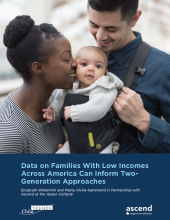
We are delighted to share a new research report in partnership with Child Trends: Data on Families with Low Incomes Across America Can Inform Two-Generation Approaches. In this new analysis, research experts Elizabeth Wildsmith and Marta Alvira-Hammond paint a detailed picture of how families in households with low incomes in the United States have changed since 2011. The report highlights 10 key findings from their analyses of family economic and social conditions related to financial security and mobility, family structure and living arrangements, education and employment, parental health, and community health indicators (for example, rates of child poverty, violent crime, child care costs). A deeper understanding of families with low-incomes will inform our collective work and strengthen how our 2Gen policy and practice recommendations can prioritize health, education, employment, and economic assets to ensure families have access to the resources they need to build intergenerational prosperity and well-being.
Authored by: Elizabeth Wildsmith and Marta Alvira-Hammond for Child Trends in partnership with Ascend at the Aspen Institute
Topics: dual-generation initiative, Early childhood, Education, Health, Housing, Legislation & Policy, Low-income, Racial inequalities
 Shared by Sandra Ware
Shared by Sandra Ware
Sandra Ware posted a
on Mar 2, 2023
Elizabeth Wildsmith and Marta Alvira-Hammond for Child Trends in partnership with Ascend at the Aspen Institute
We are delighted to share a new research report in partnership with Child Trends: Data on Families with Low Incomes Across America Can Inform Two-Generation Approaches.
0
Report
Community:
Mar 1, 2023
At this time of year, pull up to a busy intersection or pass by some popular public gathering place in and around Durham, and there’s a good chance you might find a sign advertising “PreK for All.” January kicks off Durham PreK’s annual recruitment campaign for the approaching school year, and if you have a rising preschooler in your life, you may be wondering what it means to offer pre-k for all.
The resulting report, “Toward Equity in Durham PreK: Addressing the Accessibility of Wraparound Care as a Barrier to Universal PreK in Durham,” details the findings, identifies key program participation challenges tied to wraparound care access and availability, and offers conclusions and recommendations for addressing these challenges now and in the future.
Authored by: Child Care Services Association (CCSA)
Topics: COVID-19, Early childhood, Education, Funding, Housing, Legislation & Policy, Low-income, Racial inequalities
 Shared by Sandra Ware
Shared by Sandra Ware
Sandra Ware posted a
on Mar 2, 2023
Child Care Services Association (CCSA)
At this time of year, pull up to a busy intersection or pass by some popular public gathering place in and around Durham, and there’s a good chance you might find a sign advertising “PreK for All.” January kicks off Durham PreK’s annual recruitment campaign for the approaching school year, and if yo
0
Report
Community:
Feb 17, 2023
The findings from a Syracuse University study linking universal school meal policies with improved school attendance for young students provides a strong case for expanding free school meals, according to school nutrition and attendance experts.
Authored by: Anna Merod for K-12 DIVE
Topics: Attendance, Early childhood, Education, Food insecurity, Health, Legislation & Policy, Low-income, Nutrition, Youth
 Shared by Sandra Ware
Shared by Sandra Ware
Sandra Ware posted a
on Feb 23, 2023
The findings from a Syracuse University study linking universal school meal policies with improved school attendance for young students provides a strong case for expanding free school meals, according to school nutrition and attendance experts.
0
Report
Community:
Feb 7, 2023

In the 2020-21 school year, more than 25 million children and youth – roughly half of all elementary and secondary students in the United States – attended schools in school districts that lacked dedicated funding to identify and support students experiencing homelessness. This significant funding gap increases the likelihood that many children and youth experiencing homelessness will not be identified, and even in cases where they are identified, that they will not receive the educational protections and services that can stabilize their education and their lives. Ensuring access to these supports is an important part of creating a school system that meets the needs of all our nation’s children and youth. SchoolHouse Connection and Poverty Solutions at the University of Michigan analyzed publicly-available preK-12 federal education data for the 2020-2021 school year to examine patterns that are correlated with under-identifying and inadequately supporting children and youth experiencing homelessness.
Authored by: SchoolHouse Connection and University of Michigan
Topics: Early childhood, Education, Funding, Homelessness, Low-income, Research, School-readiness, Stability, Youth
 Shared by Sandra Ware
Shared by Sandra Ware
Sandra Ware posted a
on Feb 21, 2023
SchoolHouse Connection and University of Michigan
In the 2020-21 school year, more than 25 million children and youth – roughly half of all elementary and secondary students in the United States – attended schools in school districts that lacked dedicated funding to identify and support students experiencing homelessness.
0
Interactive
Community:
Jan 24, 2023
Join us for an interactive course that explores practical, strength-based ways providers and other caring community members can help support children and families affected by conflict, crisis, or other traumatic experiences. This course can be taken as the first steps of support for newcomer families in your community.
Authored by: Sesame Street Communities
Topics: Early childhood, Family engagement, Healthy homes, Immigrants, Mental health, Youth
 Shared by Sandra Ware
Shared by Sandra Ware
Sandra Ware posted a
on Jan 24, 2023
Sesame Street Communities
Join us for an interactive course that explores practical, strength-based ways providers and other caring community members can help support children and families affected by conflict, crisis, or other traumatic experiences.
0
Report
Community:
Oct 17, 2022
Using data from the 2018 Survey of Income and Program Participation (SIPP, which has monthly income amounts for 2017) and the National Bureau of Economic Research TAXSIM model, we estimate how accurately data from the first quarter of the year can predict credit amounts a person will ultimately qualify for based on their annual characteristics. Low-income people are more likely than higher-income people to experience financial difficulties, so we focus our analysis on families with children at some point in the year with incomes below 200 percent of (twice) the federal poverty level (FPL). If credits can be accurately predicted using data from the first quarter of the year, it may present a path forward toward advance payments of credits.
Authored by: Elaine Maag, Elizabeth Peters, Nikhita Airi, Karen Smith for the URBAN INSTITUTE
Topics: Legislation & Policy, Low-income
 Shared by Sandra Ware
Shared by Sandra Ware
Sandra Ware posted a
on Dec 1, 2022
Elaine Maag, Elizabeth Peters, Nikhita Airi, Karen Smith for the URBAN INSTITUTE
Using data from the 2018 Survey of Income and Program Participation (SIPP, which has monthly income amounts for 2017) and the National Bureau of Economic Research TAXSIM model, we estimate how accurately data from the first quarter of the year can predict credit amounts a person will ultimately qual
0
Policy Brief
Community:
Nov 29, 2022
Successful diabetes care for vulnerable populations demands a multi-prong approach, deploying direct health interventions, medications, and support from a range of community resources to address the social determinants, which impact diabetes. This brief will highlight, through case studies and program descriptions, the important role of non-clinical staff in both the health center and housing setting to support individuals and families struggling to prevent and keep diabetes conditions under control.
Authored by: CSH
Topics: Health, Housing
 Shared by Sandra Ware
Shared by Sandra Ware
Sandra Ware posted a
on Nov 29, 2022
Successful diabetes care for vulnerable populations demands a multi-prong approach, deploying direct health interventions, medications, and support from a range of community resources to address the social determinants, which impact diabetes.
 Shared by Molli Caite Hughes
on Apr 10, 2024
Shared by Molli Caite Hughes
on Apr 10, 2024
 Shared by Molli Caite Hughes
on Dec 6, 2023
Shared by Molli Caite Hughes
on Dec 6, 2023
 Shared by Molli Caite Hughes
on Nov 14, 2023
Shared by Molli Caite Hughes
on Nov 14, 2023
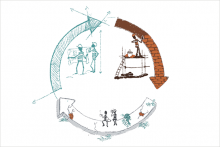
 Shared by Sandra Ware
on Jun 8, 2023
Shared by Sandra Ware
on Jun 8, 2023
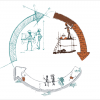

 Shared by Sandra Ware
on Jun 8, 2023
Shared by Sandra Ware
on Jun 8, 2023


 Shared by Sandra Ware
on Jun 8, 2023
Shared by Sandra Ware
on Jun 8, 2023
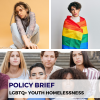

 Shared by Sandra Ware
on Jun 8, 2023
Shared by Sandra Ware
on Jun 8, 2023

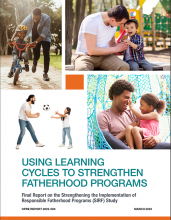
 Shared by Sandra Ware
on Jun 1, 2023
Shared by Sandra Ware
on Jun 1, 2023
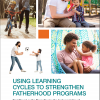

 Shared by Sandra Ware
on Jun 1, 2023
Shared by Sandra Ware
on Jun 1, 2023


 Shared by Sandra Ware
on Jun 1, 2023
Shared by Sandra Ware
on Jun 1, 2023


 Shared by Sandra Ware
on Jun 1, 2023
Shared by Sandra Ware
on Jun 1, 2023
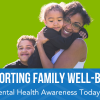

 Shared by Sandra Ware
on May 25, 2023
Shared by Sandra Ware
on May 25, 2023

 Shared by Camille Anoll-Hunter
on May 24, 2023
Shared by Camille Anoll-Hunter
on May 24, 2023

 Shared by Camille Anoll-Hunter
on May 24, 2023
Shared by Camille Anoll-Hunter
on May 24, 2023
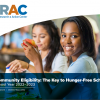

 Shared by Sandra Ware
on May 17, 2023
Shared by Sandra Ware
on May 17, 2023


 Shared by Sandra Ware
on May 2, 2023
Shared by Sandra Ware
on May 2, 2023

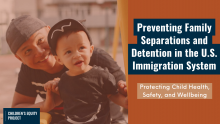
 Shared by Sandra Ware
on Mar 30, 2023
Shared by Sandra Ware
on Mar 30, 2023

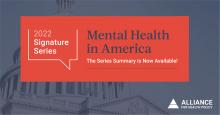
 Shared by Sandra Ware
on Mar 21, 2023
Shared by Sandra Ware
on Mar 21, 2023
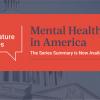

 Shared by Sandra Ware
on Mar 2, 2023
Shared by Sandra Ware
on Mar 2, 2023


 Shared by Sandra Ware
on Mar 2, 2023
Shared by Sandra Ware
on Mar 2, 2023


 Shared by Sandra Ware
on Feb 23, 2023
Shared by Sandra Ware
on Feb 23, 2023


 Shared by Sandra Ware
on Feb 21, 2023
Shared by Sandra Ware
on Feb 21, 2023
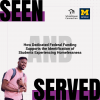

 Shared by Sandra Ware
on Jan 24, 2023
Shared by Sandra Ware
on Jan 24, 2023

 Shared by Sandra Ware
on Dec 1, 2022
Shared by Sandra Ware
on Dec 1, 2022
 Shared by Sandra Ware
on Nov 29, 2022
Shared by Sandra Ware
on Nov 29, 2022



